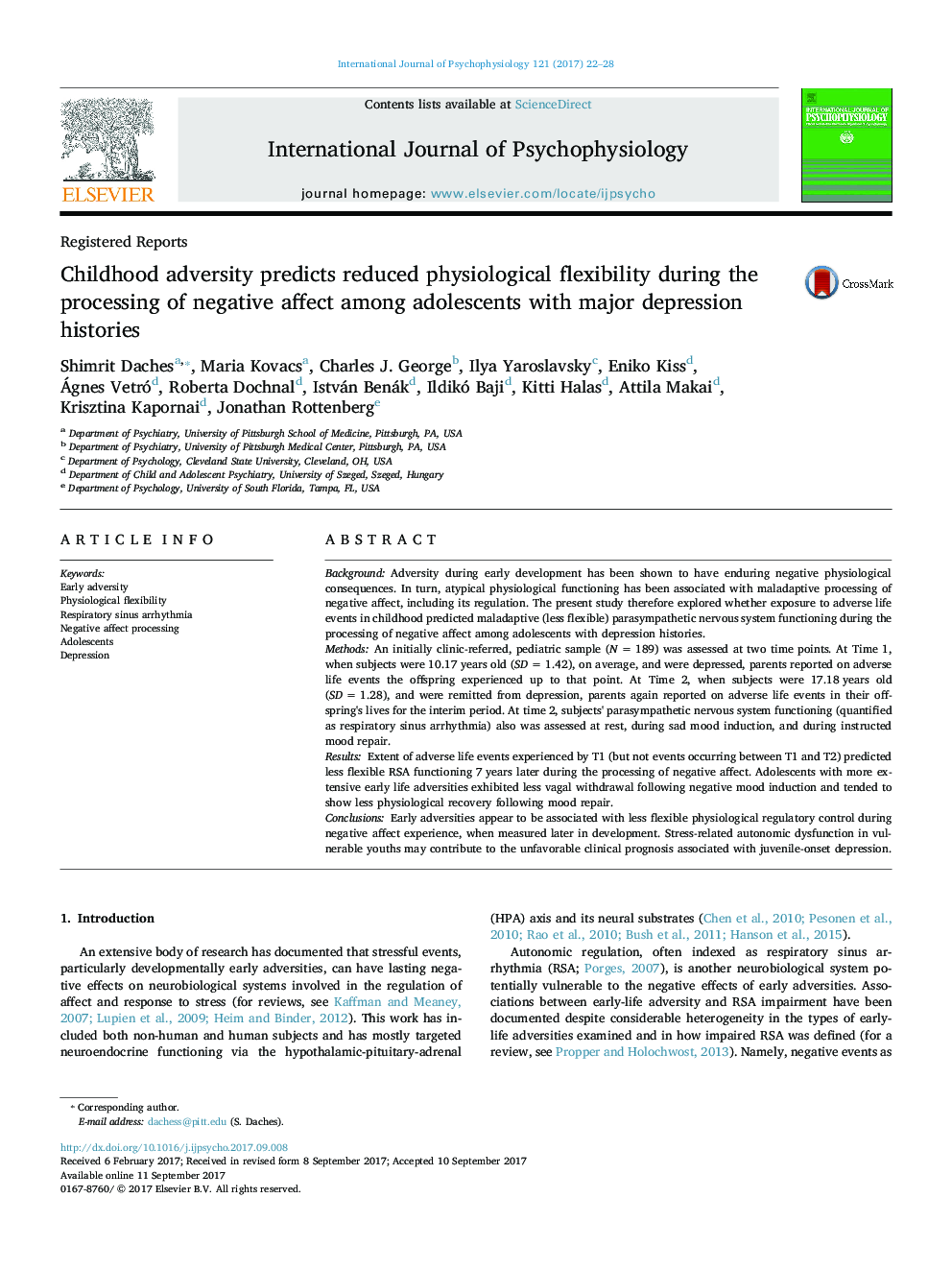| کد مقاله | کد نشریه | سال انتشار | مقاله انگلیسی | نسخه تمام متن |
|---|---|---|---|---|
| 5042194 | 1474375 | 2017 | 7 صفحه PDF | دانلود رایگان |
- We explored the link between adversities and PNS functioning in depression prone youths.
- Youths with more adversities exhibited less flexible RSA functioning 7Â years later.
- Less flexible RSA functioning was exhibited during sad mood induction and instructed mood repair.
- Recent adversities did not contribute to the prediction of RSA flexibility.
BackgroundAdversity during early development has been shown to have enduring negative physiological consequences. In turn, atypical physiological functioning has been associated with maladaptive processing of negative affect, including its regulation. The present study therefore explored whether exposure to adverse life events in childhood predicted maladaptive (less flexible) parasympathetic nervous system functioning during the processing of negative affect among adolescents with depression histories.MethodsAn initially clinic-referred, pediatric sample (NÂ =Â 189) was assessed at two time points. At Time 1, when subjects were 10.17Â years old (SDÂ =Â 1.42), on average, and were depressed, parents reported on adverse life events the offspring experienced up to that point. At Time 2, when subjects were 17.18Â years old (SDÂ =Â 1.28), and were remitted from depression, parents again reported on adverse life events in their offspring's lives for the interim period. At time 2, subjects' parasympathetic nervous system functioning (quantified as respiratory sinus arrhythmia) also was assessed at rest, during sad mood induction, and during instructed mood repair.ResultsExtent of adverse life events experienced by T1 (but not events occurring between T1 and T2) predicted less flexible RSA functioning 7Â years later during the processing of negative affect. Adolescents with more extensive early life adversities exhibited less vagal withdrawal following negative mood induction and tended to show less physiological recovery following mood repair.ConclusionsEarly adversities appear to be associated with less flexible physiological regulatory control during negative affect experience, when measured later in development. Stress-related autonomic dysfunction in vulnerable youths may contribute to the unfavorable clinical prognosis associated with juvenile-onset depression.
Journal: International Journal of Psychophysiology - Volume 121, November 2017, Pages 22-28
